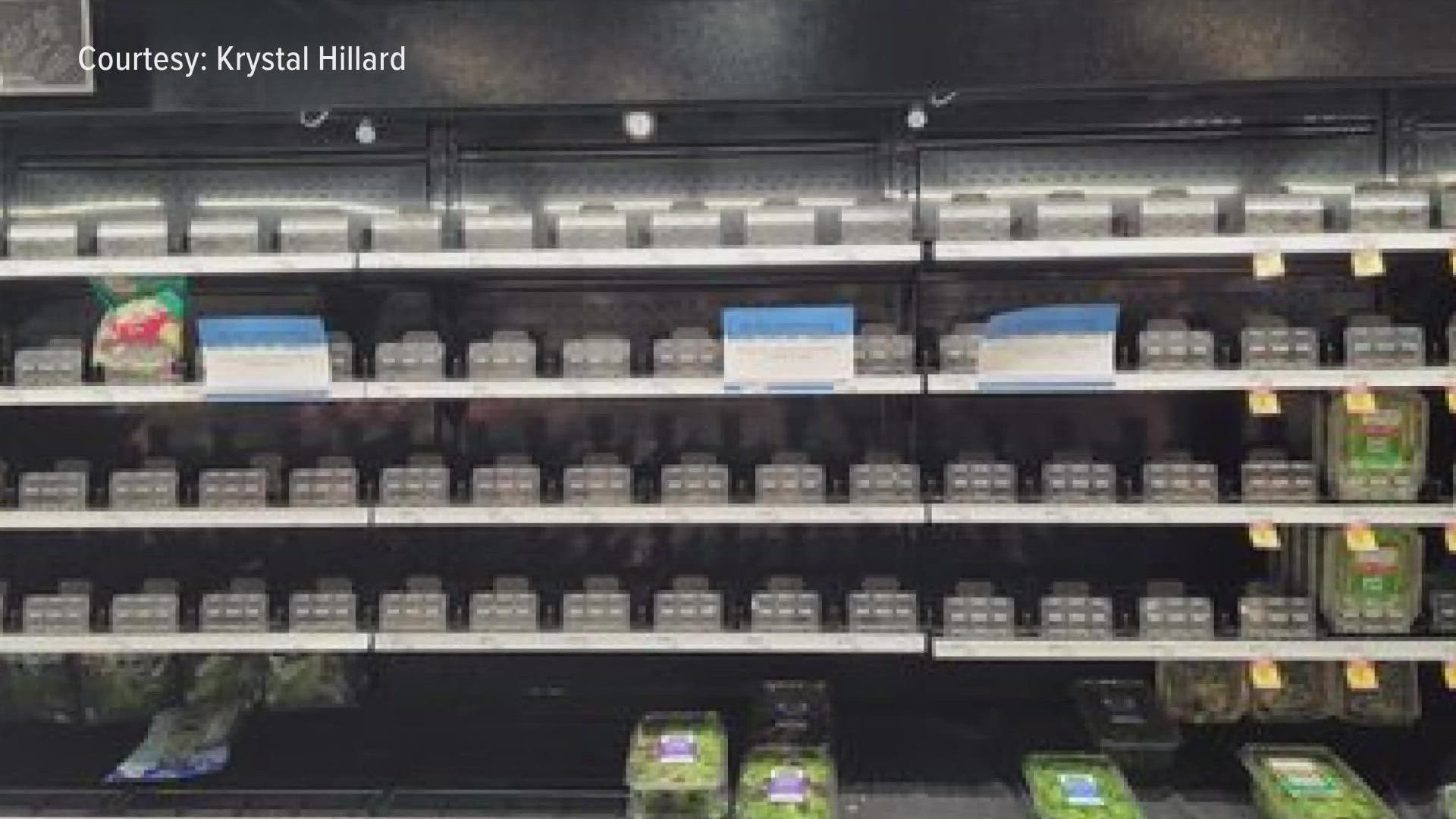GRAND RAPIDS, Mich. — Grocers across the country are reporting about 15% of their items as out of stock, according to the Consumer Brands Association. That's about a 10% increase compared to the average.
Experts say the latest shortages are part of supply chain issues we've seen throughout the pandemic, but there's an added complication now too. The rising inflation rate means it's hard for local grocery store owners to both find the products they need and pay for them too.
South East Market is a small grocery store in Grand Rapids, sourcing first from Black, Brown, Indigenous, locally-and-female-owned businesses and farms.
"It's our mission to provide culturally appropriate, affordable and healthy food for Boston Square and beyond," Co-Founder Alita Kelly says.
Despite its size, that doesn't exclude them from the big problems.
"It's just heartbreaking to see people have to make tough decisions on eating certain foods or eat at all,"
The market is keeping its shelves stocked, but it's coming at a cost because of the rising inflation rate.
"Over the last year that we've had the store open, we've noticed a continuous increase in food cost," she says.
Kelly says they're cutting corners to try and keep prices as low as possible for customers, but it's not always perfect.
"People want to see strawberries and blueberries which are already expensive in the winter, but we're seeing them at the price point that's just out of reach for a lot of people, and it means that folks who need it the most aren't getting the healthy food that they should have," she says.
"It's no surprise that the grocery business is having some difficulties too," Brian Long, the director of supply management research at the Siedman College of Business at Grand Valley State University, says.
13OYS viewers shared snapshots from inside big box grocery stores in West Michigan, running low on everything from chicken, to freezer food and bread.
"Everything is in short supply, and people are in short supply in practically every industry and every profession," he says.
Long says the empty shelves are because people are out of work because of COVID-19, in agriculture, manufacturing, transportation and retail. He's also worried about the rising inflation rate and its effect on the mindset of the consumer.
"The latest report indicates that we are at seven percent inflation, which is higher than it has been in the lifetime of most of the people that are out shopping right now," he says.
Long and other economists predict that the current supply chain could straighten itself out by the end of this summer at the earliest. He suggest that people not hoard products because eventually things will catch up.
Kelly with the South East Market says writing out a grocery list and sticking to it to keep from wasting food and your money is important right now.
►Make it easy to keep up to date with more stories like this. Download the 13 ON YOUR SIDE app now.
Have a news tip? Email news@13onyourside.com, visit our Facebook page or Twitter. Subscribe to our YouTube channel.

